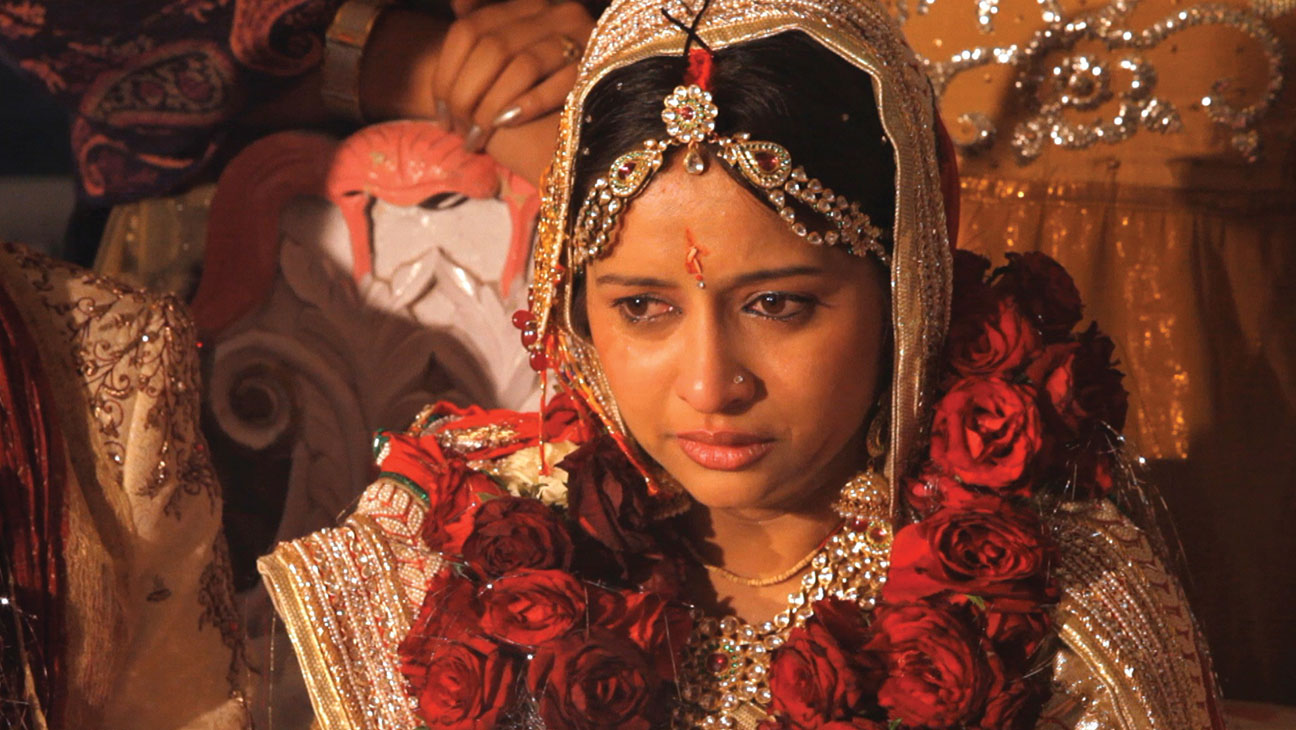
A SUITABLE GIRL
Reviewed by: Harvey Karten
Directors: Sarita Khurana, Smriti Mundhra
Screenwriters: Sarita Khurana, Smriti Mundhra
Cast: Ritu, Amrita, Dipti
Screened at: Critics’ link, NYC, 3/12/18
Opens: March 30, 2018
I’m not going to ask you, dear reader, for your opinion on the upcoming president’s meeting with Kim or what you think of protective tariffs, but rather on a surprisingly controversial issue: should marriages be arranged, whether by parents or professional matchmakers, or should you be free to choose your own partners? Remember that the Western way is fraught with problems. Fifty percent of marriages here wind up in divorce courts, and the other half are having affairs. And we’re not even that free. Could you date and marry Jennifer Aniston? Jennifer Lawrence? No. We consciously or not limit ourselves to people whose looks are as good or bad as ours and whose positions in society (occupation and wealth) are similar. On the other hand Hasidic Jews, whose marriages are arranged, have a miniscule divorce rate and stay together enough to have five, seven, ten kids (they don’t watch TV), and then some.
Marriage for love is a recent cultural invention, and it has not been tried long enough to come to a firm conclusion as to its efficacy. Arranged marriages, historically the choice of monarchs and peasants (though not to each other) in much of the world and most of its centuries, have endured to this very day.
In India, the women look at the men’s bank accounts and the men go gung-ho for looks, which, going by the above formula, means that money marries money and the handsome marry pretty. The intriguing documentary, “A Suitable Girl,” happily avoids the deadening template for documentaries, meaning that there are no talking heads interviews. We who are viewing are likes flies on the wall, listening in to the tears and laughs, frustrations and fruitions, of families of three marriageable women, one of whom would never tolerate being a servant, cook and cleaner for her husband, nor would she ask permission of the guy if she wants to work.
Writer-directors Sarita Khurana and Smriti Mundhra, in their first full-length film, hone in on three families, leaving it up to us to decide whether Indian women like the traditional way of finding mates or whether they thirst to break through for more freedom. Khurana and Mundhra spend most of their time on Dipti and her family, perhaps because she is the least demanding of the trio (perhaps because she is the most desperate), or maybe because she laughs easily and is greatly attached to her parents. She is, how-shall-we-say. a plus-size. The matchmaker tells her that her weight is the principal reason her picture is rejected by prospective husbands, and this concerns her—but she does not succeed in cutting back on the ghee and samosas. While she combs through the ads in the newspaper, rejecting one fellow because he is vegetarian, she must also put up with face-to-face meetings with prospective men and listen to her parents’ questioning them as though they are brokers at a slave auction.
Amrita is the party-girl. Though interested enough in marriage—largely because her society shuns those who are not—she will ultimately give up her life in the fiesta track to go along with society’s mandates. She will get married but must look forward to a life of cooking and cleaning for her husband, even taking care of his parents as she is living with them. (I’m familiar with a case close to home in which a Hispanic man is asked by his intended to join her in selecting a bed for their prospective home. He insists that she will live with his parents. She relents, they have a baby, and she in few months she’s fed up and moves out. There are subcultures within our own land of the free that have the same mores as those in India.)
There’s one hip woman in this doc. Ritu, who lives in Mumbai—presumably with its big-city ideas of freedom—works for Ernst & Young. At age 25 she is more concerned about her career than marriage. She’ll be damned if she has to ask her new husband for permission to continue working, but things work out best for her as she and her man move to Dubai and will spend time there on the fast track. Seema, her mother, does not see eye to eye with Ritu, and will miss her daughter even more than the other moms, but Ritu will have the kind of life she seeks even though the guy she met is through third-party arrangements. Yet, even she must deal with a self-hating Indian who wishes he were born in Europe where he could delay marriage and could select a bride freely, perhaps through his job.
By now we are aware that the feminist movement, now in its #MeToo phase, is active in the countries where women already have the most freedoms. Women here do not have to wear tight-fitting saris unless they so choose, and as the old gag states, what they make for dinner is…reservations.
Unrated. 97 minutes. © Harvey Karten, Member, New York Film Critics Online
Story – B+
Acting – B
Technical – B+
Overall – B+





